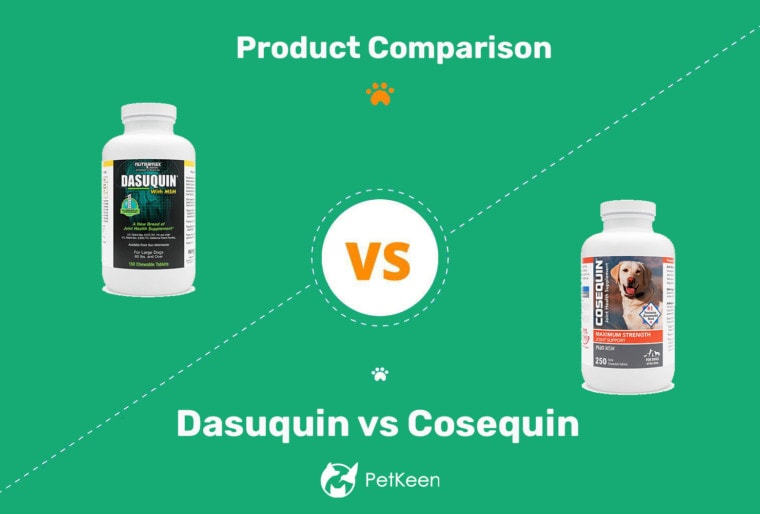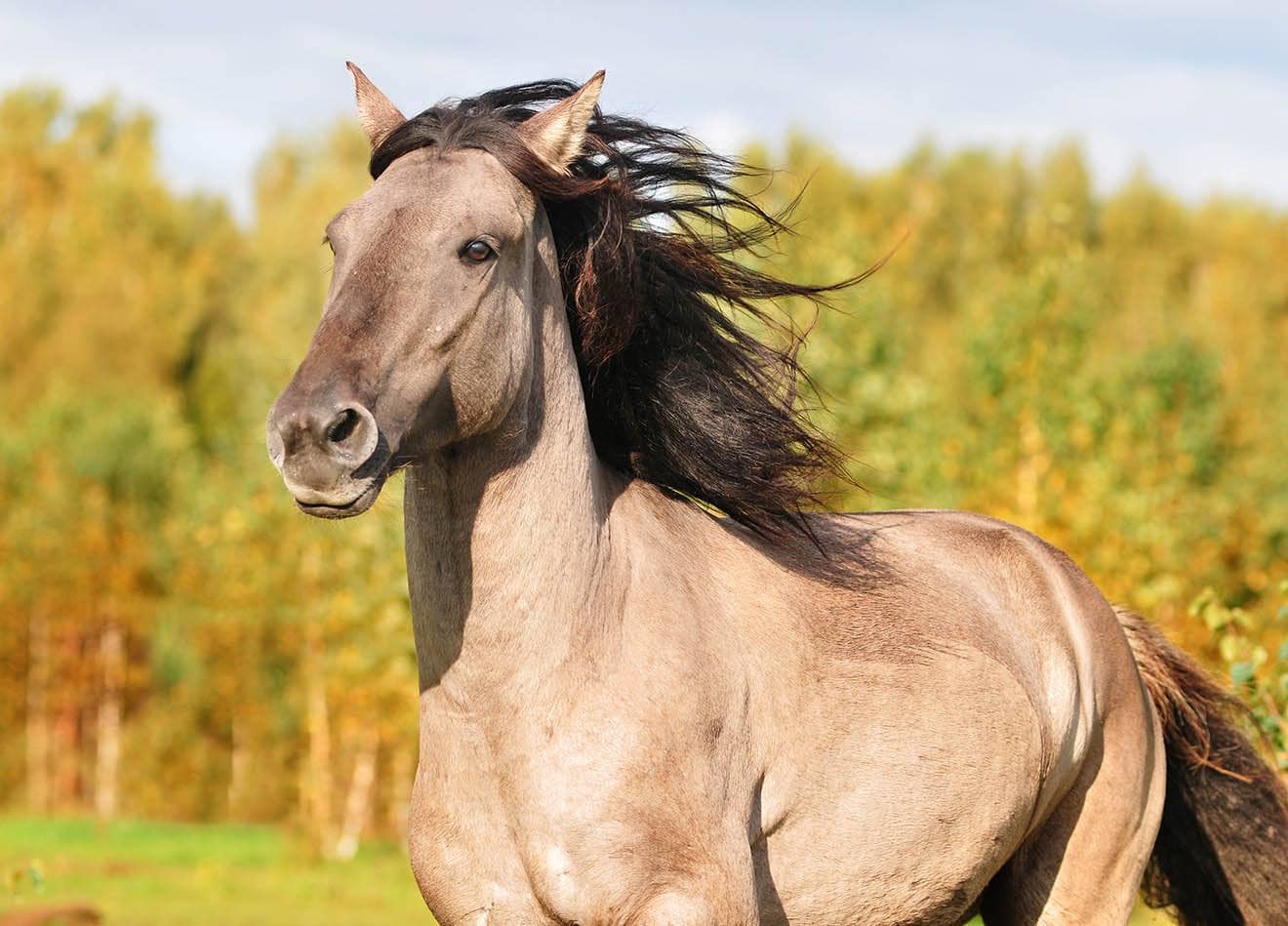
Click to Skip Ahead
Our dogs and cats are such essential parts of our lives that many are willing to try anything to keep them happy and comfortable. Joint supplements may relieve your pet’s arthritis pain and keep them mobile, but there are so many options it can be overwhelming to pick one.
In this article, we will review two supplements that can help relieve some of their pain: Dasuquin and Cosequin.
Dasuquin and Cosequin are joint supplements made by the same parent company, Nutramaxx. These supplements and other joint supplements on the market are classified as nutraceuticals.
So, what’s the difference between them? Read on to learn more.
At a Glance
Let’s look at the key points of each product.
Overview of Dasuquin
Dasuquin comes in easy-to-administer formulations; you can give a soft chewable like a treat or a tablet. The company has specific forms for cats, including a soft chew and a capsule that you can break open and sprinkle on your kitty’s food.
You’ll find glucosamine and chondroitin within the joint cartilage. Using these as supplements aims to boost the joint to aid in repair.
MSM has natural anti-inflammatory properties and can benefit arthritic dogs and cats. ASUs are also anti-inflammatory and may help decrease inflammation within the joint and provide your dog or cat relief, particularly with severe arthritis.
How Long Does It Take Dasuquin to Work?
The labeled directions for Dasuquin are to give a loading dose for 4 to 6 weeks. That’s about the time it takes to help your furry family member. After that initial dosing, you may be able to give a lower dose or the supplement less frequently and still see benefits.
Overview of Cosequin
Cosequin is another easy-to-give joint supplement, with forms including chews, tablets, and sprinkle capsules. They have formulations for dogs, cats, and even horses.
The MSM and omega-3 fatty acids in Cosequin help decrease inflammation, and the glucosamine and chondroitin function similarly in Cosequin as they do in Dasuquin. The lack of ASUs may make Cosequin less ideal for pets with cases of bad arthritis. ASUs can cause gastrointestinal upset in some dogs, so these pets may benefit more from Cosequin.
How Long Does It Take Cosequin to Work?
Cosequin also needs a loading period of approximately 4 to 6 weeks to see how well it will do for your pet. After that time, you may be able to decrease the amount of Cosequin you’re giving, but that is something you should discuss with your veterinarian.
What Are the Differences Between Dasuquin and Cosequin?

What Users Say About Dasuquin and Cosequin
You’ll find many opinions about Dasuquin and Cosequin online and by talking to your veterinarian. For many, these joint supplements are very effective and economically support their dogs into their golden years. Not all pets respond the same way, and some certainly note that Dasuquin or Cosequin did not help their dog or cat.
Some people have mentioned that their dog may have a flavor preference. The good news is that if your dog does not want to take one variety, you can always try another version.
Talk with your veterinarian about giving your dog a joint supplement. They can generally make a solid recommendation about which product may work better in your particular case.
Alternatives to Joint Supplements
Joint supplements aren’t the only game in town, and your dog may benefit from other treatments or using Dasuquin or Cosequin in conjunction with other products.
Adequan is a popular medication administered as twice weekly injections for four weeks. Also known as polysulfated glycosaminoglycans, Adequan helps in several important ways:
Librela is a relatively new medication in the United States to help dogs with arthritis pain. It is a monthly anti-nerve growth factor monoclonal antibody therapy specifically designed for dogs with arthritis–and there’s a formulation called Solensia available for cats.

Frequently Asked Questions
How long can a dog take Dasuquin?
Dasuquin is helpful as a long-term supplement. You’ll start by giving a higher dose for the first 4 to 6 weeks. Many pets can then have their “maintenance dose” decreased. Pets have taken Dasuquin for many years.
Does Dasuquin have side effects?
Most pets tolerate Dasuquin well. The more common side effects you might see with this joint supplement are soft stool or gas. These signs will usually pass with little intervention, but you should discuss any side effects you see with your veterinarian.
Conclusion
Dasuquin and Cosequin are effective nutraceuticals that can help dogs with joint pain. Dasuquin is generally more expensive than Cosequin because it contains components not found in Cosequin, such as ASUs. Your furry friend may not need to have the more inclusive product, so it’s worth looking into them both as options.














